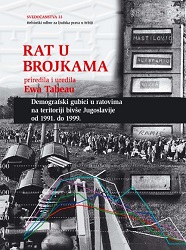
Promene u etničkom sastavu u Opštini Višegrad, 1991. i 1997.
Testimony report in the LUKIĆ and LUKIĆ case (IT-98-32/1)
More...We kindly inform you that, as long as the subject affiliation of our 300.000+ articles is in progress, you might get unsufficient or no results on your third level or second level search. In this case, please broaden your search criteria.

Testimony report in the LUKIĆ and LUKIĆ case (IT-98-32/1)
More...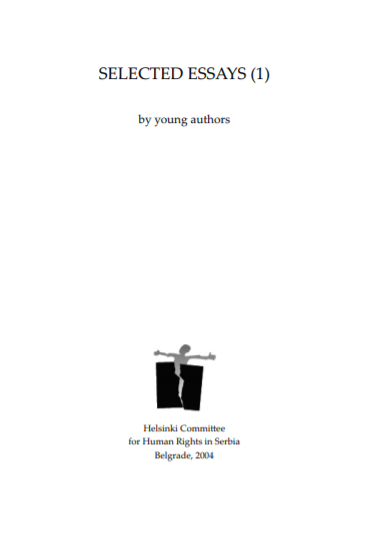
How many times in my life have I heard “Why do you interfere?!”, or “Let it be, you can’t do anything about it!”. And, certainly, the most frequent phrase: “As if my voice would change anything”. I keep asking myself what is the matter here? Do people underestimate themselves and clearly say “I’m just a nobody”, or willingly sink into a collective molasses, saying: “That’s the way we are”. In my case, the problem with identification emerged for the first time in the first grade of elementary school, when records on nationality began to be kept. The ones asked before my turn answered: “Yugoslavian”, “Turkish”, “Serbian”, Hungarian”…I have a surname which corresponds to the nation quoted last, and to the fact that my grandfather speaks Hungarian fluently. Until then, I probably haven’ seen Hungary even in the pictures, and as I admitted knowing how to count up to ten in my grandfather’s language (I could also count in English, but that wasn’t a part of my dilemma), I declared myself as a citizen of Zrenjanin.
More...
Of all the misfortunes that happen to my people, but also to all the other peoples, without exception, I am most upset with those involving children. I don’t justify wars, which are begun by the adults, not by children who are completely innocent, but perish without even beginning to live. I think there is no punishment harsh enough to which I’d sentence such people. This is a true story about the destiny of some people, which made a strong impression on me and made me think.
More...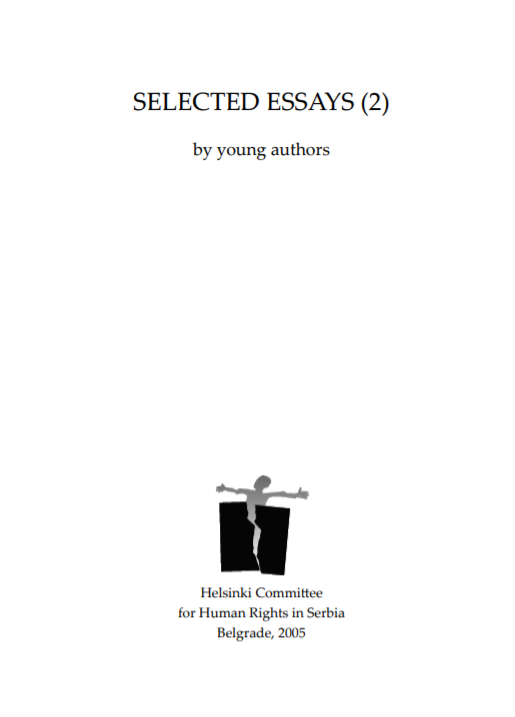
90’s are gone forever. We are 10 years older, poorer, and truly. That is the price of our stupidity and of our irresponsibility.” In the 90’s I was six years old. I did not know what the society was, what a political party was, what a President was. I was unaware of existence of those things, and of the fact that some people, other than my parents, influenced my life. But I knew that the following year I would start going to school
More...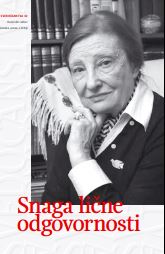

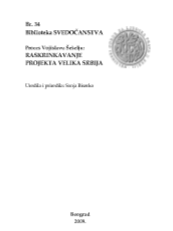
Cilj ove studije je analiza uloge Operativne grupe Jug Oružanih snaga SFRJ (Gardijske motorizovane brigade i dodatne jedinice) tokom dejstava u Slavoniji, Baranji i zapadnom Sremu u cilju zauzimanja Vukovara, i nakon tih operacija (od septembra do 24. novembra 1991). - Dva su bitna aspekta ove analize. Prvo, u izveštaju se istražuje struktura oružanih snaga SFRJ, doktrina komande i kontrole (nad oružanim snagama i unutar njih), disciplina i ostali važni aspekti. Drugo, u izveštaju se analizira na koji način je Operativna grupa Jug oružanih snaga SFRJ u jesen 1991. izvodila operacije u Slavoniji, Baranji i zapadnom Sremu (i Vukovaru), uključujući odnose između Gardijske motorizovane brigade i drugih oružanih grupa koje su dejstvovale na vukovarskom području pre, za vreme i posle evakuacije vukovarske bolnice. - Da bi postigla svoj cilj na najefikasniji način, studija je podeljena na dve velike celine. Svaka ceklina se sastoji od više delova. Da bi se olakašalo čitanje, svaki deo počinje sažetim prikazom. Skraćenice su navedene i objašnjene posebno u Glosaru.
More...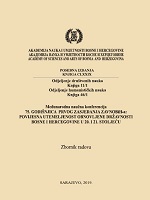
The significance of the celebration on November 25, 1969, is that the date of that year was officially recognized on the state holiday of the Socialist Republic of Bosnia and Herzegovina. The marking of this important date from the history of Bosnia and Herzegovina lies in the context of important political, economic, social, cultural and other changes in the Yugoslav state wich have been gradually taking place since the mid-60s, when they gave major political powers to the republic goverments. As this process has proceeded in Bosnia and Herzegovina, it can be analyzed as an example of marking the 26th anniversary of ZAVNOBiH. On this festive days in Sarajevo on November 29th, on the Day of the Republic, Josip Broz Tito attended the premiere of the film Battle of Neretva in the newly opened modern center of Skenderija. A day after, at the solemn session of the Academy of Sciences and Arts of Bosnia and Herzegovina, he was awarded the first honorary member of these most scientific institution in Bosnia and Herzegovina. Also, this was the time of strog sensivity of the Yugoslav public towards Bosnia and Herzegovina after the devastating earthquake in Banja Luka and Bosanska krajina, which occured only a month earlier (October 27, 1969). The postponed population Tito visited the day later and promised them the assistance of the entire Yugoslav community. The significance of Bosnia and Herzegovina in the constitution of the Yugoslav state Tito also emphasized on November 29 for the premiere of the film with a well-known theme from the Second World War and a reminder of the heroic battles that took place in Bosnia and Herzegovina’s territory. Otherwise, the association with the events of the National Liberation War was an integral part of all introductory speeches on the occasion of marking socialist holidays. The joint celebration on 25 and 29 November 1969 in Sarajevo was also the last with great hopes and expections in the coming 70s.
More...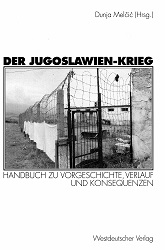
1.1. Methodological Preliminary Remarks 1.2. Settlement history 1.3. The role of the state and the church 1.4. The Ethnic Map of the Middle Ages 1.5. The impact of the Ottoman conquests 1.6. The consequences of modernization
More...
2.1. From the early days to the Reformation 2.2. Aftermath of the Reformation 2.3. Modernization and integrative processes 2.4. In the first Yugoslav state 2.5. The Second World War and the communist dictatorship 2.6. Decentralization and national antagonisms 2.7. On the way to independence
More...
3.1. Middle Ages and early modern times 3.2. The epoch of centralist reforms 3.3. Beginning of national integration 3.4. The Austro-Hungarian Compromise and its Consequences 3.5. The pre-war period and the First World War 3.6. Croatian historiography and politics in the 20th century
More...
11.1. Course and actors 11.1.1. Conquest and division 11.1.2. The Independent State of Croatia (NDH) 11.1.3. The Chetniks 11.1.4. The Partisans 11.1.5. War of Liberation and Civil War 11.1.6. Allied policy 11.2. Casualties
More...
12.1. Basics developed during the Second World War 12.2. The time of "administrative socialism" 12.3. The break with the Soviet Union 12.4. The expansion of self-management socialism 12.5. Yugoslavia (not) a special way to socialism
More...
19.1. The political imaginary of Croatian national history 19.2. On the history of Bosniak mythology 19.3. The Sarajevo Paradoxon
More...
21.1. Accession to power and turn to nationalism 21.2. From the destruction of provincial autonomy to aggression against the northern republics 21.3. From the conquests in Bosnia to the defeat in Kosovo
More...
27.1. The turning point and end of the war 27.2. The Dayton Agreement 27.3. Bosnia-Herzegovina as a semi-protectorate?
More...
29.1. Perceptions and politics of the European states 29.2. Relaunch of classic power politics in the Balkans? 29.3. American and European Politics in Contrast
More...
30.1. International law in upheaval 30.2. The Military Conflict: Barbarism as "Normality" 30.3. The international legal reactions. Recognition as a design tool 30.4. The Question of Military Response: Peacemaking versus “Humanitarian Intervention” 30.5. The UN criminal tribunal 30.6. The Dayton Agreement 30.7. The Kosovo intervention 30.8. Summary
More...
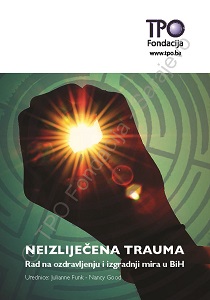
Uvjerene smo da održivi mir ne može postojati bez rada na liječenju od traume nakon nasilja. Osim toga, trauma koja se ne transformira ostaje zarobljena i često prelazi u novo nasilje. Navedene tvrdnje su temelji ove knjige, kao i konferencije iz koje je ona proizišla: “Trauma, pamćenje i ozdravljenje na Balkanu i šire”. Konferencija je održana u bosanskohercegovačkoj prijestolnici, Sarajevu 2016. godine i ugostila je međunarodne i domaće naučnike/ce i praktičare/ke iz širokog spektra disciplina, što se vidi i u poglavljima. U radu su ozbiljno razmatrani priroda i uloga traume, kao i prilike za izgradnju mira u različitim kontekstima – uključujući poslijeratne države nastale raspadom Jugoslavije – ali i prepreke tomu. I u Zborniku su razmatrana ista pitanja, s fokusom na Bosnu i Hercegovinu (BiH) jer je nedvojbeno najteže pogođena raspadom Jugoslavije devedesetih godina.
More...